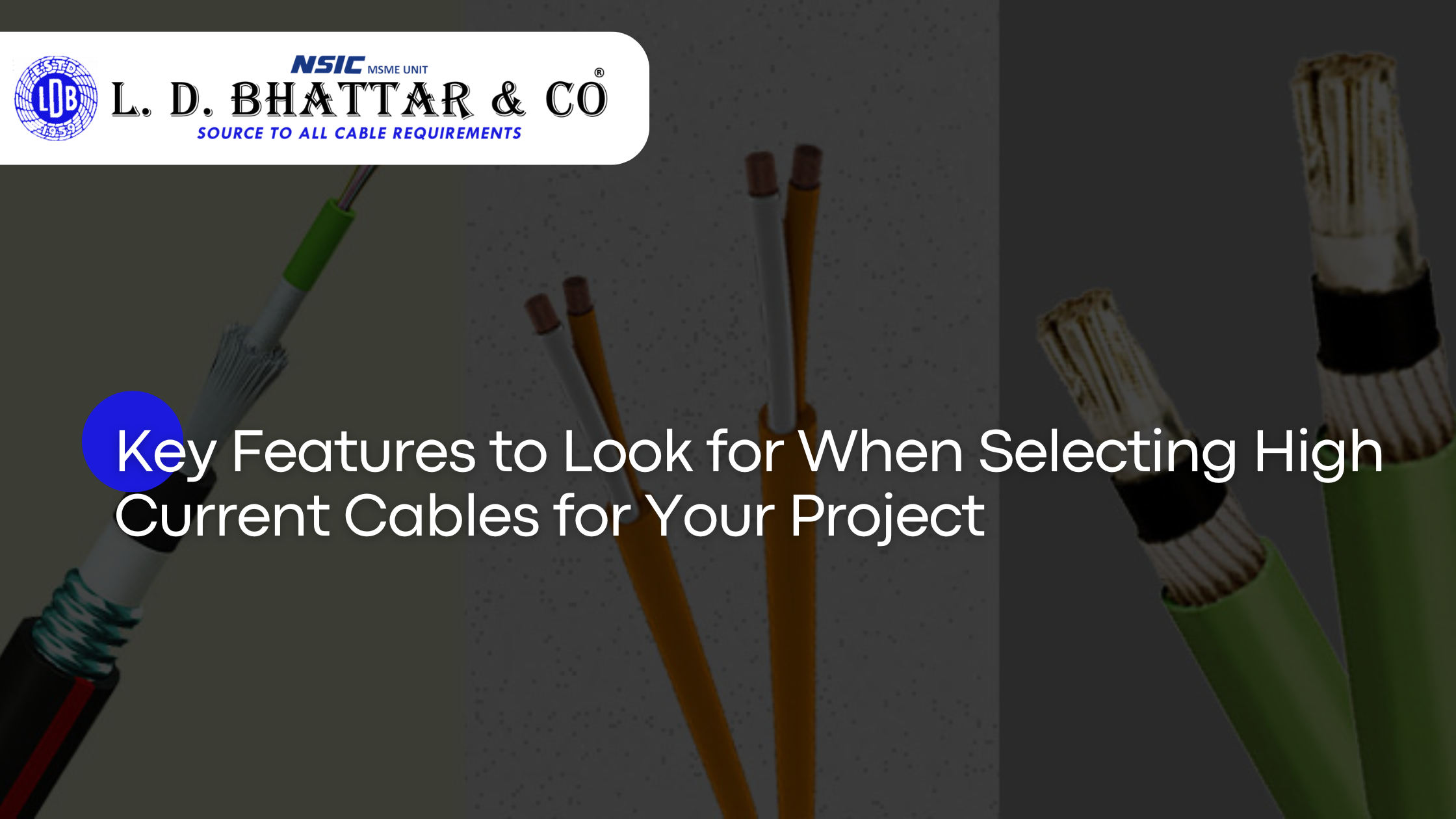Key Features to Look for When Selecting High Current Cables for Your Project

Selecting the right current cable is extremely important for the efficiency and safety of any electrical project. With so many options available, it’s become overwhelming to choose the right one. Therefore, you should understand the features in detail to set high-quality cables apart.
There are several factors, including durability, current carrying capacity, heat resistance, and insulation quality, that play a vital role in ensuring reliable performance. In this blog, we will discuss the features in detail so that you can make the right decision while purchasing products from high-current cables manufacturers in India.
Factors You Should Consider While Selecting Cables for Products
Usually, cables contain conductors, which are surrounded by insulation material, including rubber and plastic. Keep in mind that the number of conductors, the type of insulation, and their gauge may vary based on the intended application of cables. Nowadays, companies use two types of cables: shielded and unshielded.
Length of Cable
Remember that the cable length has an adverse impact on signal quality over long distances. Signal interference and attenuation become more important factors in this case. To avoid any issues, you should follow the recommended cable length guideline and use amplifiers for longer runs.
Bandwidth and Type of Signal
Different types of cables must be used to fulfil particular bandwidth and signal type requirements. For instance, you may know that network cables mainly prioritise data transfer speed, but audio or video cables support high-frequency speed. Therefore, you should select the cables for your projects that can handle the type of signal and bandwidth requirement of your application.
Current Rating
This is one of the most important factors that ensures the cable can handle the existing high current without exceeding the safe operating temperature.
Range of Temperature and Size of Cable
Before purchasing the product, you should consider the operating temperature to make sure that the cable’s insulation can withstand the heat. In addition, you should also consider a cable with a large enough conductor to maintain the required current.
Interference Protection and Shielding
Keep in mind that radio frequency interference (RFI) and electromagnetic interference (EMI) degrade the quality of the signal and lead to operational issues. Shielded cables provide better protection against interference, which makes them important for applications where signal integrity is essential, including sensitive electronic equipment or industrial environments.
Type of Connector and Durability and Flexibility
Usually, cables are purchased with several connector types, including,
- BNC
- RCA
- XLR
Therefore, you should ensure that the cables are manufactured with appropriate connectors for your equipment. Otherwise, you should use an adapter if required.
Termination Options
The way cables will interface with the rest of the system also matters. Cables come with several termination options, such as connectors, lugs, or even bare wire ends. You should choose terminations that are compatible with the connection points on your other elements.
Contact Us!
By keeping these key features in mind, you can select high-current cables that will reliably and safely support the power requirements of your project. Take the time to carefully assess your application’s needs and work with a reputable cable supplier to find the right solution.
With the right high-current cables, you can have confidence that your project will perform as expected, even under demanding power loads. However, if you want to purchase high-quality cables, contact L. D. Bhattar & Co., the renowned and trusted high-current cables manufacturers in India.
